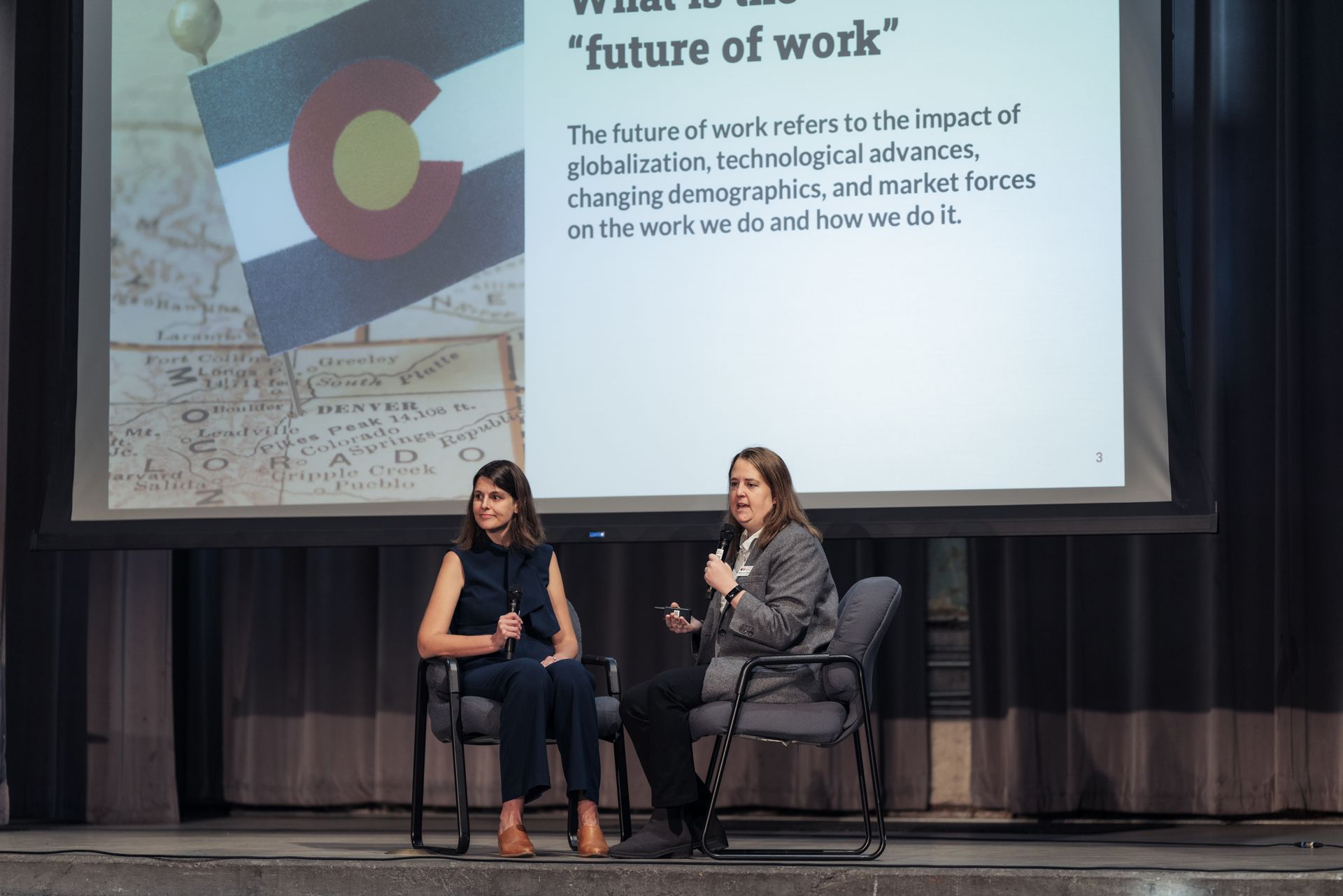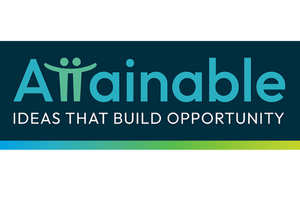Katherine Keegan & Denise Miller on Apprenticeships and the Future of Work

At the 2023 Colorado Pathways Conference Katherine Keegan, Director of the State’s Office of the Future of Work and Denise Miller, Director at Apprenticeship Colorado explored the future of work trends, how they will affect Colorado and explained how apprenticeship programs can prepare learners for this future.
Future of work trends that are and will impact Colorado and the United States include:
- Globalization and market forces leading to increased interconnectedness.
- Technological advances and their impact on both job function and relevance
- Demographic shifts, including an aging workforce and diversifying younger generations.
- The need for digital skills and literacy in every industry.
With these dramatic and disruptive shifts on the horizon, learners and workers need an efficient and effective education and skills training model to access new types of work and higher paying jobs. Apprenticeships offer a compelling model, incorporating paid work, relevant on-the-job learning and training, and critical relationships with employers. As apprenticeship is recognized as an important workforce development strategy both inside and beyond the skilled trades, there are opportunities to enhance both scope and reach so more and more diverse learners’ and workers can participate and reap its benefits:
- Public Awareness and Marketing: Promoting apprenticeships through marketing materials and outreach efforts is crucial. Schools, career counselors, navigators, employers, community organizations and workforce development agencies can play a significant role in spreading awareness about apprenticeship opportunities.
- Stakeholder Engagement: Collaboration with educators, employers, government agencies, and community organizations is essential in developing accessible and ubiquitous apprenticeships. Engaging with stakeholders can lead to innovative solutions and increased program participation.
- Employer ROI: Supporting employers in developing apprenticeship programs and talent pipeline requires clear ROI for apprenticeship development and easy to access information and support.
- Educating Families: Families may have traditional views of career paths and may not fully understand the potential for apprenticeships that lead to well-paying jobs. Schools, community organizations, and apprenticeship programs can work together to dispel myths about apprenticeships and highlight their benefits in terms of career advancement and earning potential.
- Apprenticeships Across Age Groups: Apprenticeships are not limited to younger individuals just starting their careers. Middle-age and middle skill learners and workers can benefit from apprenticeships to switch careers or gain new skills. Some apprenticeships are designed for those with prior experience or education.
- Navigators and Outreach Specialists: Piloting programs like navigators or outreach specialists can help bridge the gap between apprenticeship programs and potential participants; working with schools, workforce centers, employers and other stakeholders. Navigators can serve multiple stakeholders connecting resources and information.
- Transportation Issues: Access to transportation can be a barrier for youth and those from disadvantaged backgrounds to participate in apprenticeship programs. This can limit the number of learners and workers who can take advantage of such opportunities. Finding local solutions, such as partnering with transportation providers or offering transportation assistance, could help mitigate this issue.
- Customized Solutions: Each region and program may face unique challenges related to apprenticeships. Tailoring solutions to specific local needs and constraints can be an effective approach. This might involve leveraging local grants, creating supportive services, and collaborating with community organizations.
Despite these challenges, apprenticeship is a powerful model which creates opportunities to catapult learners into meaningful careers while simultaneously providing distinct value to employers. To find out more about State initiatives on apprenticeships visit the websites below.
The Office of the Future of Work
RECENT ARTICLES



